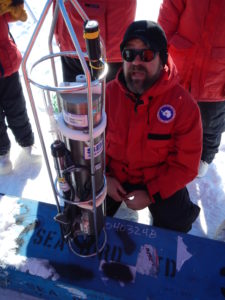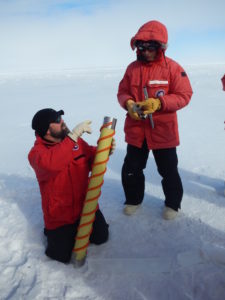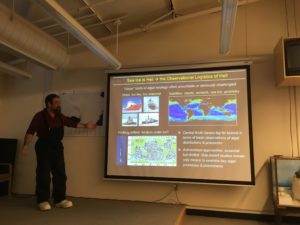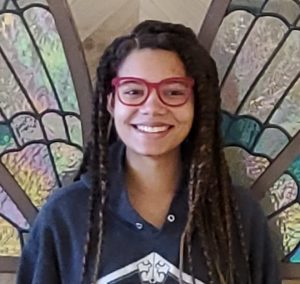Educational efforts
Education and the training of the next generation of ocean specialists are important aspects of my professional life. As a practitioner, I am active within various educational programs at and beyond WHOI. As a education scholar, I have continued to pursue my interests in cross-disciplinary STEM training and in social justice education through my MEd in Higher Education in the College of Education at the University of Massachusetts, Amherst, and other avenues.
I am faculty in the MIT/WHOI Joint Program and have trained graduate students and/or taught graduate courses in three disciplinary areas within the JP:
- The Joint Program for Biological Oceanography (JPBO)
- The Joint Program for Applied Ocean Science and Engineering (JPAOSE)
- The Joint Program for Chemical Oceangraphy (JPCO)
As faculty in the JPAOSE I co-taught the introductory course in Principles of Ocean Instrument Systems (MIT 2.688) . It is a semester-long, hands-on 12-unit graduate-level course taught in the Fall of each academic year, required for all JPAOSE students. During COVID I reworked the laboratory elements of 2.688 so that they could be completed by students at home.
As faculty in the JPBO discipline I revised and co-taught Elements of Modern Oceanography (MIT 12.702). This is a special, 12-credit semester-long graduate course in foundational oceanography designed to increase cross-disciplinary breadth across the entire Joint Program. 'Elements' was also the keystone academic course for WHOI's former Semester at WHOI (SAW) resident undergraduate program.
I co-taught the JPBO introductory course in Biological Oceanography (MIT 7.470) . It is our semester-long, 12-unit graduate-level course taught in the Spring of each academic year, and is required for all JPBO students.
I also have developed and taught a special topics course, MIT 7.433 Marine Bio-Optics. This is an introduction to marine optics and its applications in oceanography which focuses heavily on hands-on, laboratory experience with optical instruments and principles.
I have a strong interest in research and innovation in higher education. This includes collaborative work to ideate and develop new programs and initiatives, but also self-directed work in areas of higher ed research of interest to me.
- Integrative and interdisciplinary training in STEM fields: I am a firm believer in the value of study and research among and between established STEM disciplines. I approach this through practice but also through research, studying the principles and pedagogy of disciplinary integration.
- Professional doctorate and postdoctoral programs: My research focus with my MEd program was in the area of alternatives to standard PhD and postdoctoral programs in STEM fields, as a means to enhance training toward non-research careers. I believe such programs offer considerable value in training the next generation of ocean specialists to meet evolving societal needs.
- STEM in a liberal arts curriculum: I've had the opportunity twice to serve as a Visiting Professor at Deep Springs College in California. In 2007 I developed and led courses and independent studies in Single Variable Calculus, Multivariable Calculus, and Numerical Methods & Computer Modeling. In 2011 I returned to teach Single Variable Calculus and in Multivariable Calculus again. Both instances provided opportunities to rethink and explore quantitative skill building and awareness in non-STEM undergraduates.
My interest in polar oceanography started with an opportunity to participate in the International Graduate Training Course in Antarctic Marine Biology, a NSF-sponsored training course at McMurdo Station, which I attended in 2006. This course was offered semi-annually and gave students a broad exposure to laboratory and field work in polar environments. I was invited to return to McMurdo and join this course again in 2018-2019 as an instructor.



I believe that diverse and inclusive participation is essential to advancing STEM disciplines and ensuring that research meets societal needs. Social Justice Education therefore plays an important role in my research and educational efforts.

I have been a summer research mentor in the Woods Hole Partnership Education Program (PEP). PEP is is a multi-institutional program between the 6 Woods Hole scientific institutions and the academic partner, the University of Maryland Eastern Shore. PEP is a 10-week program designed primarily for college juniors and seniors from underrepresented groups in marine and ocean sciences who want to spend a summer gaining practical experience in marine and environmental science. My first PEP student (Xzayana Henderson, Dakota State University) arrived in June 2021 and worked on algal image analysis using ImageJ.
 At an organizational level, I have worked to frame and launch new initiatives that bring educational organizations together toward shared goals. I was one of the organizing members of the BRAID Alliance, a multiorganizational collaboration seeking to advance equity and access in marine geosciences. As a scholar-practitioner, I've helped programs like BRAID leverage scholarship in SJE and education equity to broaden impact.
At an organizational level, I have worked to frame and launch new initiatives that bring educational organizations together toward shared goals. I was one of the organizing members of the BRAID Alliance, a multiorganizational collaboration seeking to advance equity and access in marine geosciences. As a scholar-practitioner, I've helped programs like BRAID leverage scholarship in SJE and education equity to broaden impact.